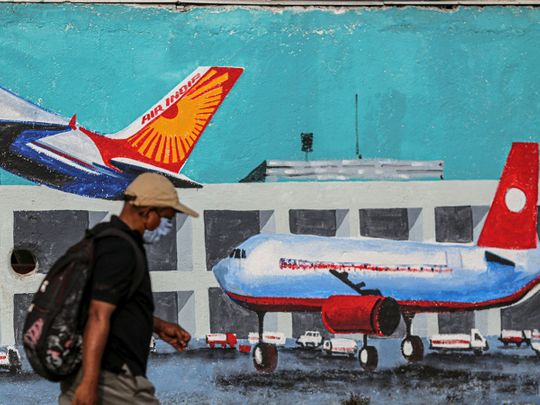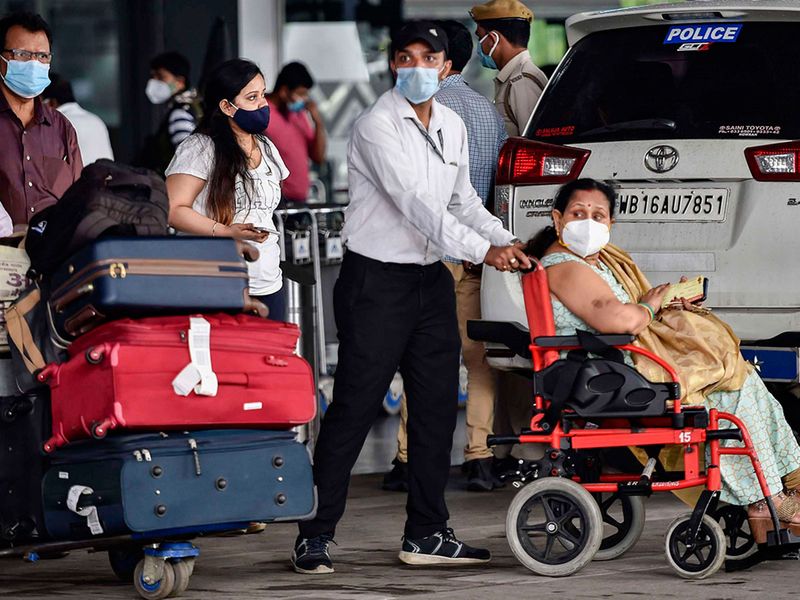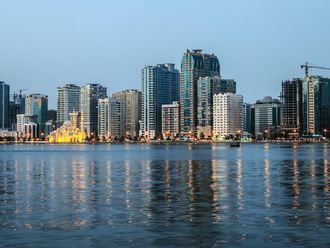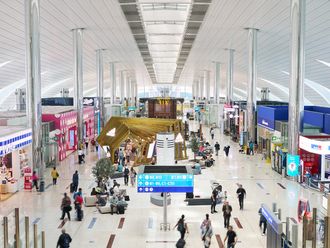
Dubai: The ‘summer of hope’ for UAE and other global airlines is yet to take-off, with the ‘Delta plus’ variant of the COVID-19 bringing about further delays. The variant, which has become more apparent in India’s latest COVID-19 infections, has sparked concerns of a third wave – and forcing governments everywhere to bring back stringent measures.
“People from high variant locations, including India and the UK, are going to struggle to be allowed into other countries while there are uneven rates of vaccination around the world,” said Andrew Charlton, an aviation analyst. “We are living in a global Petri dish - and we need to be patient.”
That’s not it, UAE’s recently established travel corridors – which allow passengers to fly quarantine free – could be affected as well. The Delta plus variant “will totally undermine the hastily built travel corridors and things will remain less than ideal,” said Charlton.
Emirates and Etihad have extended their ban on flights from a handful of countries, including India. Meanwhile, Saudi Arabia has suspended flights from four countries, including the UAE, due to COVID-19 concerns. This is bad news for UAE’s airlines who were looking to bring back almost 2019-level air connectivity levels by the end of this year.
US advisory
A new US advisory warning against travel to UAE is only going to hit passenger confidence further. On June 28, the Centers for Disease Control and Prevention (CDC) issued a ‘Level 4’ Travel health Notice for UAE due to COVID-19.
The discovery of new strains of the COVID-19 virus is making the process of re-opening borders and air travel really complicated. The Delta strain is one of four “variants of concern” identified by the World Health Organisation (WHO). It has already spread to more than 80 countries and the WHO predicts it will become the dominant strain of COVID-19.
Multiple variants of the virus that causes COVID-19 have been documented. Information about the emerging SARS-CoV-2 variants and the small differences that set them apart are changing rapidly. Scientists are working to learn more about how easily they spread, how severe the illness they may cause, and whether authorised vaccines will protect people against them.

Stranded passengers
Thousands of Indians who flew home from the UAE when travel restrictions were eased are stuck at their homes in India owing to new protocols having kicked in. They are worried over their jobs and businesses, and in several cases about reuniting with families in the UAE.
Chhaon Bahl, a UAE-based public relations professional, went to India to attend a family function and has been stuck there for almost 80 days. Due to the constantly changing regulations, Bahl ended up booking tickets on three different flights.
Authorities “need to issue one clear regulation,” said Bahl. “I understand with the new mutant there is a lot of fear, but with the strictest safety measures they should allow vaccinated residents to come in, maybe even in limited slots. My biggest concern is living in this constant state of uncertainty, not being able to be with my family and it is hurting my job as I had resumed work from office.”
Another resident, Mohammed Shareef, has been stuck in India for almost four months. “I want to come back to UAE as soon as possible otherwise I will lose my job.”
India matters
India is UAE's largest source market and represents about a third of its passenger traffic. In 2019, there were about 3.42 million Indians living in UAE.
“The Subcontinent is an extremely important market for carriers in and out of the Gulf,” said John Strickland, Director of JLS Consulting. “It has already faced heavy restrictions; any more will further damage the revenue stream that would normally be available to those airlines operating in the market.”
The UK's insistence on retaining flights from the UAE on its ‘red list’ is not helping airlines either. The UAE has one of the best vaccination rollout programmes anywhere in the world, which has ensured its airlines – and fliers – have received instant access to more European destinations starting next month. But the UK remains the one stumbling block, with the red-listing forcing all fliers from the UAE to go through mandatory quarantine once they arrive in the UK.








